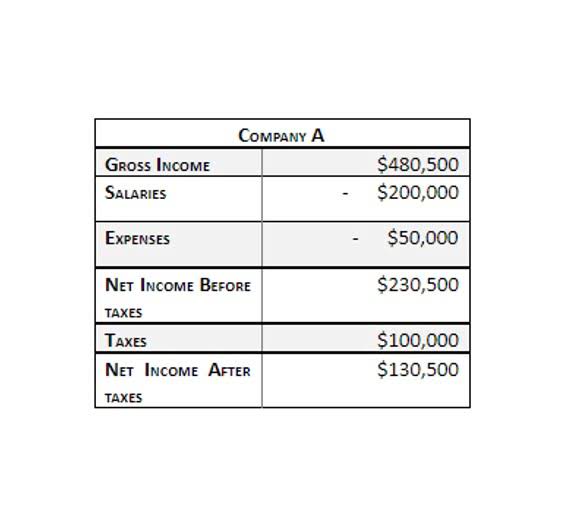
Unlike Partnerships, where owners pay self-employment taxes on their earnings, S-Corp owners do not pay self-employment taxes on their share of the business’s profits. To ensure that S-Corp owners contribute to the federal tax system, the IRS requires them to pay themselves a reasonable salary through a W-2. This salary is subject to payroll taxes, which are split between the employer (the S-Corp) and the employee (you, the owner). S corporations are corporations that elect to pass corporate income, losses, deductions, and credits through to their shareholders for federal tax purposes. Shareholders normal balance of S corporations report the flow-through of income and losses on their personal tax returns and are assessed tax at their individual income tax rates.

Claim $1600 Stimulus Check – IRS 2025 Rebate & Eligibility
S Corp s corp payroll owners need to adhere to the IRS’ “reasonable salary” guidelines. The IRS could scrutinize your tax returns more aggressively, and this could result in audits, interest charges, and penalties. The IRS might even make you pay extra taxes if they determine a portion of your distributions should have been counted as salary.
Understanding S Corp Compensation
Additionally, your S corporation will withhold and then remit to the IRS your federal income taxes on your behalf. Structuring your business as an S-corporation changes how you get paid as the owner. Rather than taking the profits of your business as direct income, you will process payroll for yourself and any shareholders who work with you. You can take the remaining profits as distributions, which aren’t subject to self-employment tax.
- Next, you need to determine how much you, as an employee, will owe for your federal income taxes.
- The biggest risk you can take as an S Corp owner-employee is to take no salary at all.
- The corporation remains in existence from the date the Secretary of State endorses the Articles of Incorporation and continues until it formally dissolves.
- Once a foreign corporation qualifies with the Secretary of State to do business in California it is subject to the franchise tax.
- The tax is typically a percentage of the wages paid to employees, and it is used to fund unemployment benefits for workers who lose their jobs through no fault of their own.
- Small business owners form s corporations because they sometimes create large savings, especially with self employment taxes.
- However, they may be able to claim other tax benefits, such as deductions for business expenses, to reduce their tax liability.
IRS Guidelines Compliance

You must set up a payroll system to deduct and pay payroll taxes in addition to paying yourself a salary. This covers the Social Security and Medicare taxes as well as the federal income tax. Additionally, you will have to submit quarterly payroll tax filings to the IRS and state tax authorities. The IRS says that s corp owner/operators who provide more than minimal services to their s corporation must pay themselves as employees of the s corporation. This ensures that both the employee and the employer pays their appropriate share of social security and medicare taxes.
- We treat returns filed after the extended due date as delinquent, with penalties computed from the original return due date.
- As an S-Corporation (S-Corp) owner, understanding the distinctions between W-2 wages, distributions, and K-1 profits is essential for managing your tax obligations and business finances.
- Structuring your business as an S-corporation changes how you get paid as the owner.
- As a part of the One Big Beautiful Bill, the No Tax on Overtime provision creates an above-the-line deduction on the taxpayer’s tax return for overtime pay during a given taxable year.
- This goes back to the whole idea of the IRS not wanting to lose out on your tax money.
FUTA Tax Exemptions for Business Owners

Your salary should reflect what you’d pay someone else to do your job. Ensuring compliance also involves regular reviews of payroll processes and documentation practices to correct any discrepancies promptly. Maintaining meticulous records and understanding the intricacies of tax obligations is essential for every S Corp owner. Ensuring that your salary aligns with market rates and cost of living is crucial Medical Billing Process for IRS compliance.

Implications for Business Owners
This structure requires careful planning but can offer significant long-term savings compared to a sole proprietorship. Contrary to standard C-Corps, an S-Corp is a type of corporation that is intended to prevent double taxation. In S-Corps, the income is passed on to the shareholders, who are then taxed at their individual tax rates on the profits.
The key is to find a balance—underpaying yourself could trigger IRS questions, while overpaying might hurt your business’s finances. If you are an S Corp owner considering applying for unemployment benefits, it’s crucial to understand the application process and what to expect. Resources like RCReports are invaluable for performing thorough analyses of reasonable compensation. This tool helps in establishing defensible salary benchmarks, thereby minimizing the risk of IRS penalties. Reasonable compensation is a key concept that the IRS scrutinizes closely.